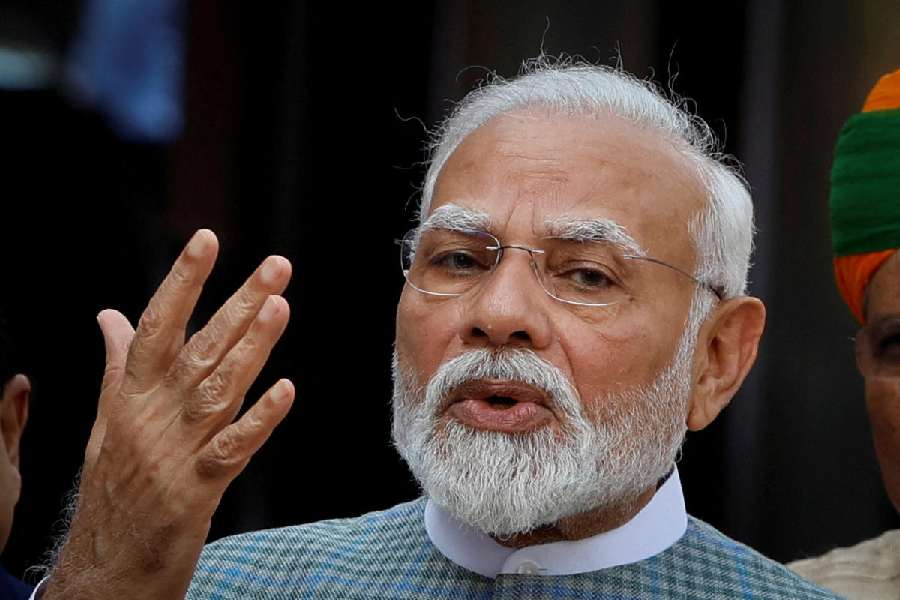Prime Minister Narendra Modi on Tuesday said the India-Middle East-Europe Economic Corridor has the potential to 'transform' the global maritime trade, and invited investors to partner with the country to be a part of the initiative.
Speaking at the inauguration of the third Global Maritime India Summit (GIMS) via a video-link, Modi said India was able to forge a historic consensus at the G-20 for the IMEEC, and added that the initiative will prove to be a catalyst for prosperity, the same was as Silk Route was a few centuries ago.
"The corridor has the potential to transform the global maritime industry," he said, adding that the initiative announced at the G20 meeting in New Delhi earlier this year, will drive positive changes in global and regional trade.
"For investors, this is an opportunity to partner with India and be a part of these efforts (of making the corridor happen)," he added.
Modi said the corridor entails a slew of developmental initiatives, including building next generation mega ports, international container transshipment ports, island development, inland waterways and expansion of multimodal hubs.
The IMEEC will help reduce the cost of business by making logistics more efficient, curtail damage to the environment and also create a lot of jobs, Modi said in the address at the summit, which has delegates from over 70 countries.
The PM said the world order is changing post-Covid and the entire world is looking towards India with new aspirations. He added that the domestic economy is continuously getting stronger to be the third largest.
Very few countries are blessed with development, demography, democracy and demand, Modi said, inviting global investors to be part of India's growth journey, wherein the country aspires to break into the league of 'developed' nations in 25 years.
Modi said his government has been working to strengthen the maritime sector in the last 9-10 years, and added that whenever India's maritime capabilities have been strong in history, the country and the world have benefitted from it.
In the last decade, major ports' capacity has doubled, turnaround time for containers has come down to 24 hours from 42 hours in 2014, thousands of kilometres of roads have been built for better port connectivity, Modi said, pointing that employment generation and ease of living are the primary drivers for these efforts.
'Ports for Prosperity' and 'Ports for progress' are a vision for the government, Modi said, adding that the mantra is to 'Make in India … make for the world'.
Without specifying a timeline, Modi said the government will be developing shipbuilding and repair centres in many centres across the country.
Building the indigenous aircraft carrier INR Virat is a testament to the country's capabilities, he added.
Four global ship leasing companies have registered with the GIFT-IFSC, Modi said, exhorting more entities in the ship leasing trade to set up a presence in India's only IFSC in Gujarat.
He said India's large coastline, strong riverine ecosystem and rich cultural heritage create great possibilities for maritime tourism. A cruise terminal is being built in the financial capital, while similar facilities have come up in Visakhapatnam and Chennai, he said.
Terming the 5,000-year-old Lothal dockyard as the 'cradle of shipping', Modi said a National Maritime Heritage Complex is also coming up at the site in Gujarat.
He also noted that the country has started the world's biggest river cruise service to promote maritime tourism.
Except for the headline, this story has not been edited by The Telegraph Online staff and has been published from a syndicated feed.











